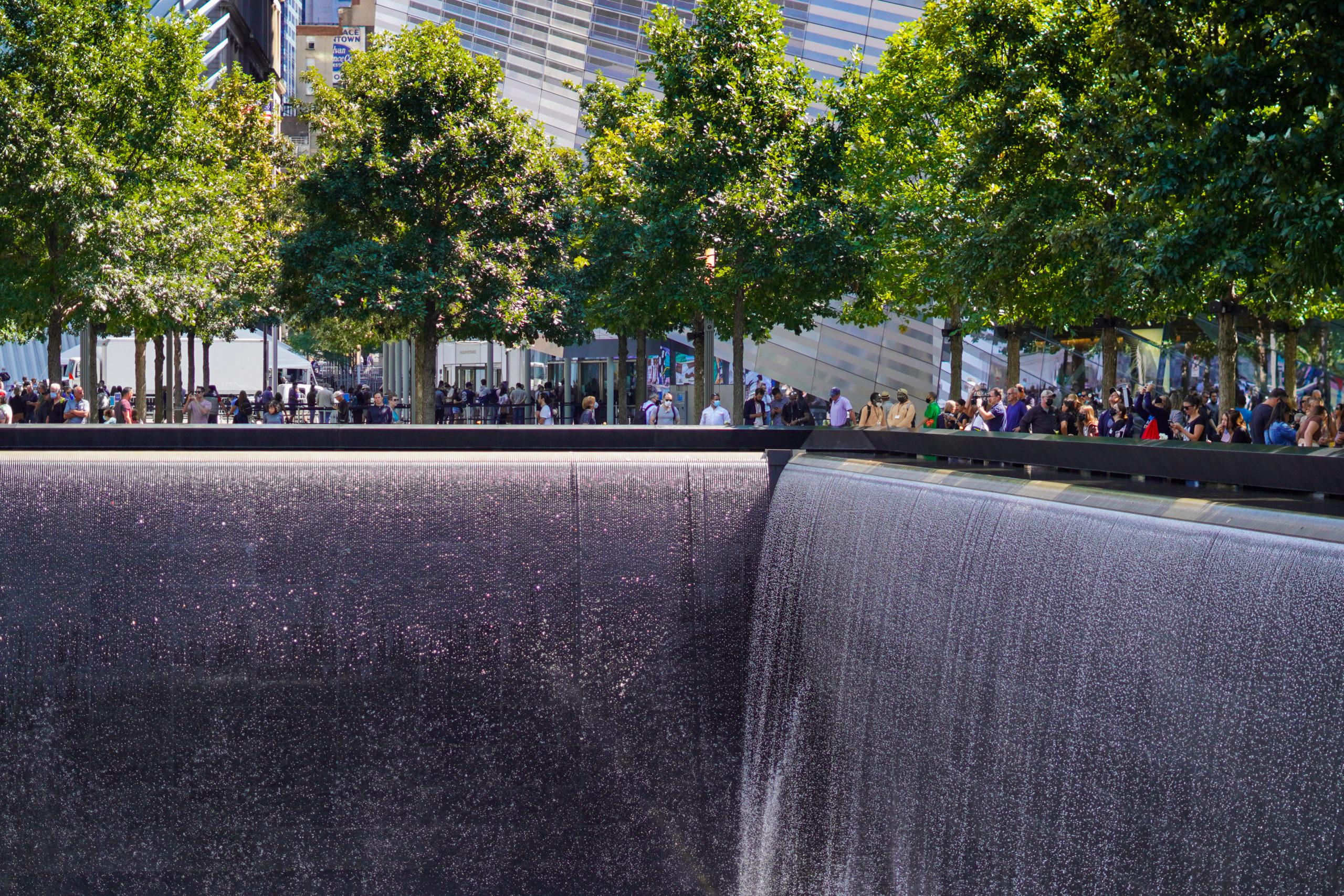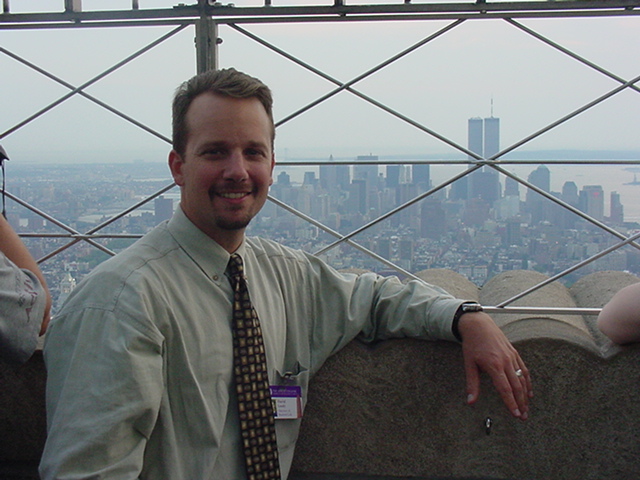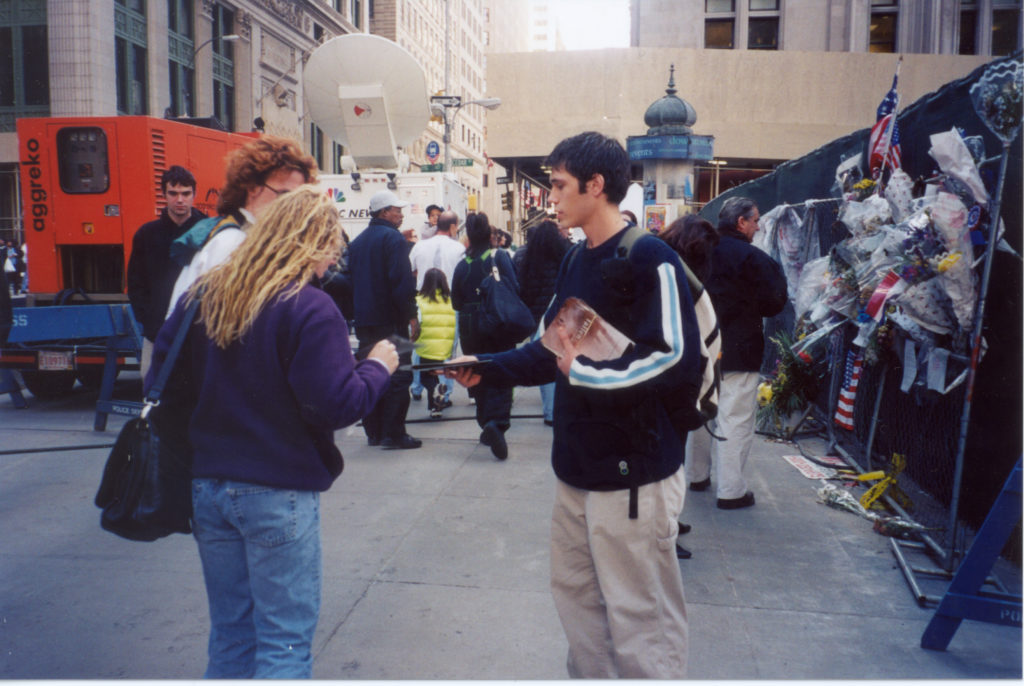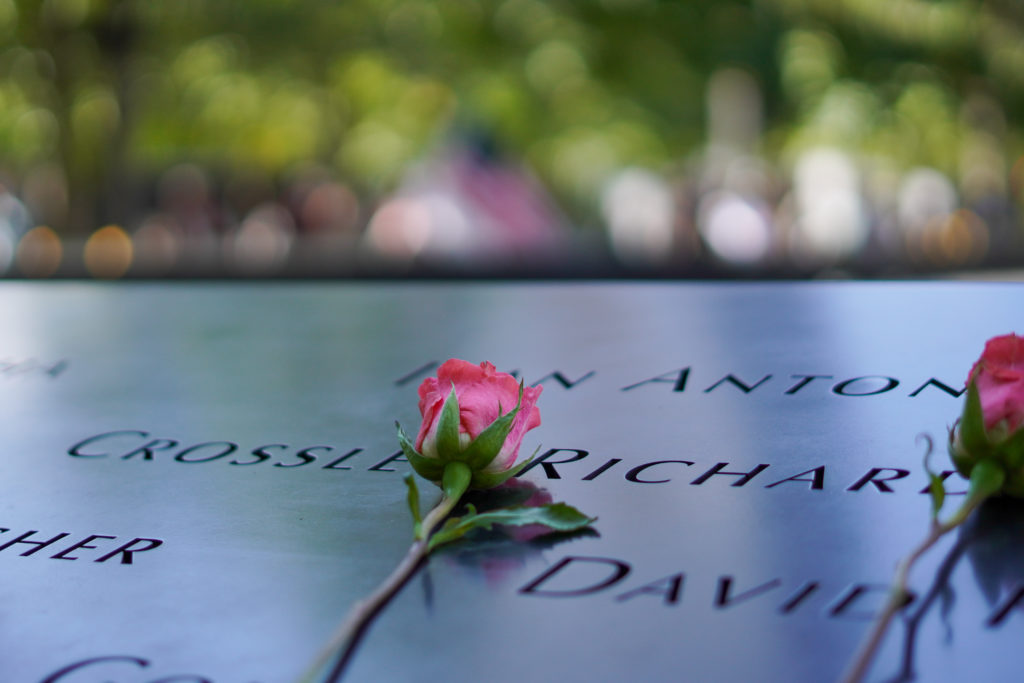The King’s College Remembers 9/11
Even as New York City recovered, the spiritual effects of the World Trade Center attacks were long-lasting.

“New Yorkers were in a state of complete awe and silence. Some people were crying visibly in the street. And then when the buildings fell, it was just chaos,” said Dr. Stephen “Doc” Salyers, associate professor of communications and humanities, of his memories of September 11, 2001. At the time, The King’s College had been operating in the Empire State Building for just two years. After the first plane collided into the World Trade Center at 8:46am, the Empire State Building began evacuating its tenants onto Fifth Avenue. King’s students, staff, and faculty joined a growing crowd on the street. Salyers recalls how they could look straight down Fifth Avenue and see the towers burning.
Twenty years later, King’s staff and faculty still remember 9/11 and mourn the lives lost on that day. In the hours and weeks that followed the The World Trade Center attacks, members of the King’s community played a role in offering relief to fellow New Yorkers. But even as New York City recovered, staff and faculty felt the ongoing spiritual effects of the 9/11 attacks.

On the morning of September 11, 2001, David Leedy, vice president for student development (then director of student life), and Ralph Castillo, director of Christian formation (then associate director of admissions) were attending the 16th Annual Prayer Breakfast at the United Nations with a small group of students. At the event, Yale professor Miroslav Volf addressed the room of UN diplomats with a presentation on “The Will to Embrace,” where he spoke of overcoming division and hatred with God’s love. The message would prove timely in the aftermath of the attacks.
While attending the breakfast, Castillo received a message on his BlackBerry informing him that a plane had hit the towers. Castillo wrote back to his friend, “Accident?”
“No. Terror,” was the response.
At first, the prayer breakfast program continued. But when news reached the United Nations that the second plane had hit the towers, UN security personnel closed out the building and ushered everyone out onto the sidewalk. Castillo, Leedy, and the group of students stepped into a nearby pub to watch the news on television. Watching the towers fall on screen, Leedy recalls thinking, “this is not real.” When they left the pub, they rejoined Christian Embassy, the Cru ministry that sponsored the prayer breakfast, which had set up a table on Second Avenue to distribute water bottles to people walking uptown from the Financial District. For the next several hours, the King’s group pitched in to pass out water and to pray with those headed north.
Leedy says, “They were covered head to toe in ash and they looked like zombies. Nobody was talking. They all had this shocked look on their faces. Many of them were in tears because their colleagues were in the buildings that went down.”
At Fifth Avenue, staff and faculty were focused on getting students home safe. Since King’s did not yet have student housing, students were commuting from various locations around the City. They had to walk back to their homes because tunnels, bridges, and subways were shut down. Some students who weren’t able to walk to their homes came back to Queens to stay overnight at the Leedys’.
As Leedy walked home across the Queensboro bridge later that day, seeing the change in the skyline underscored the realization that the city was forever altered, not just materially but in its psyche. New Yorkers went out of their way to be considerate to those around them, and churches were full. Some even attended prayer meetings on September 11 doused in ash. A few days after the attacks, Leedy recalls a stranger on the subway asking him, “Where is God in all this?” Leedy continues, “This was a question on the tongues of many people. I heard it over and over, from individuals and on the evening news.”
The King’s College joined with other organizations to develop a pair of magazines highlighting stories of heroism in the midst of the terrorist attacks. Millions of copies of “Fallen But Not Forgotten,” and “After the Dust Settles” were given out all over the country.

In response to the attacks, Dr. Robert Carle, professor of religious and theological studies, began what he calls a new chapter in his academic life. He began teaching the course on Islam that he still teaches at King’s, surveying the life of Muhammad, the beliefs and practices of the Muslim community, and the differences between various schools of Islam. He also began intentionally cultivating interfaith relationships and joined a group of Christians, Jews, and Muslims who met regularly to discuss issues of common concern.
For Castillo, the events of 9/11 emphasized the importance of discipleship. Someone took the time to train and mold the nineteen men who participated in the attacks. What kind of discipleship and formation are we participating in? “We have the opportunity to form students for such a time as this,” Castillo reflects. In the current events that face us today, it is our task to ask, “How did we steward the moment?”





